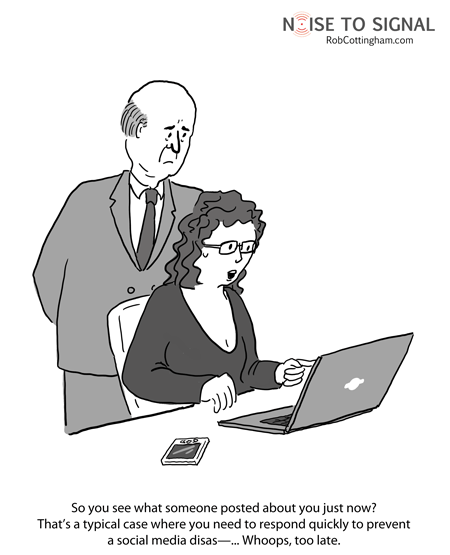Originally posted on ReadWriteWeb
A while ago, I posted about one of the classic blunders in response to online criticism: deleting negative comments.
Let’s add another mistake to that list: silence.
I’m not sure there’s a force on earth that could have saved Susan G. Komen for the Cure from the social media firestorm that engulfed the organization this week. (Other than avoiding their original decision, which struck me as deeply misguided at best.) But lord knows their communications strategy didn’t do them a lot of favors – starting with their initial silence.
Whether the rationale is “Let’s hope it blows over” or “We can’t get internal consensus on a message, so let’s not say anything” or “Legal suggests we shut up”, silence does nothing to stop an online juggernaut from building. All it does is reinforce the impression of an organization’s critics that it’s out of touch with their concerns.
Back when the main communication vehicles were things like ads and news media, you could often take a good long time before pushing out a news release or sending a spokesperson out for a scrum. Not any more.
Two things can help if you find yourself in the Komen situation – especially if you need some time to gather the facts, reflect on your position and decide on your next move.
First, a crisis communication plan. Thinking about possible scenarios and developing a strategy for each one – including who responds, how and in what channel – means you don’t have to do that thinking when your fight-or-flight mechanism is competing with your higher reasoning functions for attention.
And second, an honest temporizing response. Replying to people that you understand how important the issue is to them, and promising them a more complete response within a few hours or days, and then delivering on that promise with a sincere and direct reply, can give you and your colleagues the time to move beyond a reactive, defensive response to a more effective one.
What won’t work is wishful thinking. Planning based on the assumption that nobody will notice what you’ve done – or that when they do, they’ll give you the benefit of the doubt – is some of the best fuel a firestorm could ask for.

